Ten ways Spain has changed since the death of Gen Francisco Franco

It's been forty years since the death of Gen Franco brought an end to Spain’s fascist dictatorship and set the nation on the path to democracy. But how has Spain changed?
The Spain of 2015 is a very different to the place it was on November 20th 1975 when the death of El Caudillo saw an end to 36 years of repression and economic isolation and saw the nation catapulted into modern Europe.
William Chislett explored Spain's unprecendented period of modernization in a report for the Madrid-based think tank Real Instituto Elcano.
Here are ten ways modern Spain is very different indeed.
Women’s rights
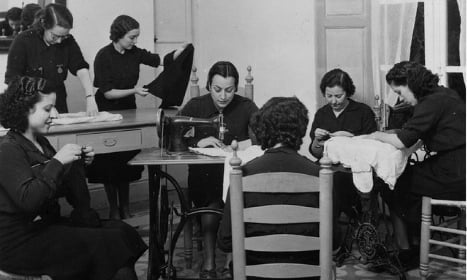
Women at work during the Franco era Photo: Teresa Avellanosa / Flickr
During the Franco regime a married woman could not even apply for a passport or sign a contract without her husband’s permission. Today Ffemale university students outnumber male graduates and hold 40 percent of the seats in parliament.
Women today account for 46 percent of the working population up from 30 percent in 1975.
Socially progressive

Photo: Shutterstock
From the rigid and asphyxiating morality of the Franco regime and the stricture of the powerful Roman Catholic Church, Spain has become one of the world’s most socially progressive nations. In 2005 it became only the third country in Europe to legalize same-sex marriages.
Richer
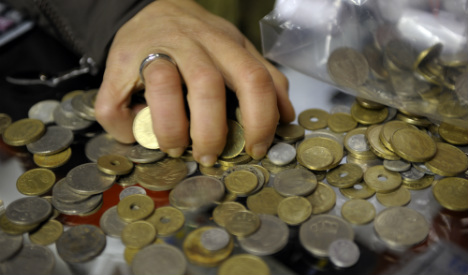
Even taking into account the prolonged recession that ended in 2014 Spain has enjoyed an unprecedented period of prosperity.
Economic output increased almost tenfold between 1975 and 2015 to around $1 trillion.
Per capita income rose from US €2,800 ($3,000) to more than €28,000 ($30,000)
Exports of goods and services more than trebled to 32 percent of GDP.
Fewer jobs
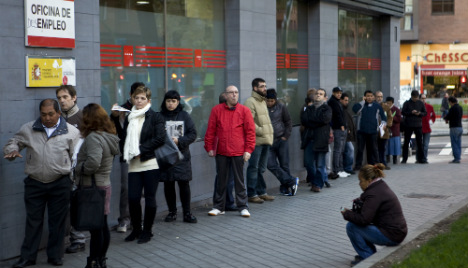
People queuing outside a Madrid job centre, 2015. Photo: AFP
The main black point as regards the economy is the unemployment rate: up from a mere 5 percent in 1975 to a whopping 22 percent now.
And employment by sector has changed significantly since 1975. Just 4 percent of jobs today are in agriculture compared with 22 percent in 1975, 14 percemt of employment is in industry and construction, down from 38 percent, while services employ 76 percent.
More tourism

A postcard from Benirdorm circa 1970
Although the package holiday pioneered by Benidorm were invented in the 1960s under Franco, Spain's popularity as a tourist destination has gone from strength to strength. The number of tourists rose from 27 million the year Franco died to an estimated 68 million this year.
More cars
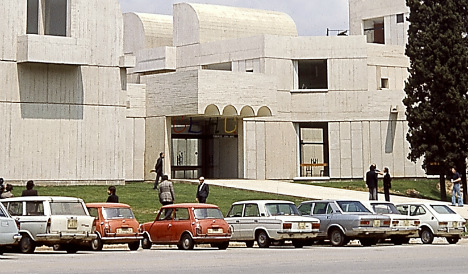
Cars in Spain circa 1976. Photo: AFP
There were 123 cars per 1,000 people the year Franco died and more than 500 cars per 1,000 people today.
More people
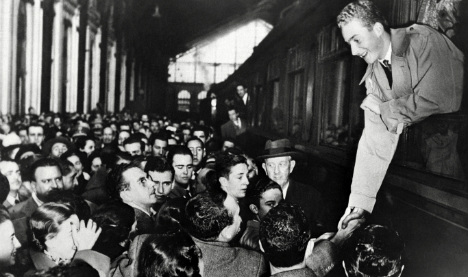
A young Juan Carlos greets the crowds in Madrid in 1955. Photo: AFP
The population rose by 10.4 million to 46.4 million, mostly over a 10-year period as a result of an unprecedented influx of immigrants. In the decade before the 2008-13 crisis Spain received more immigrants proportional to its population than any other EU country.
Aging population
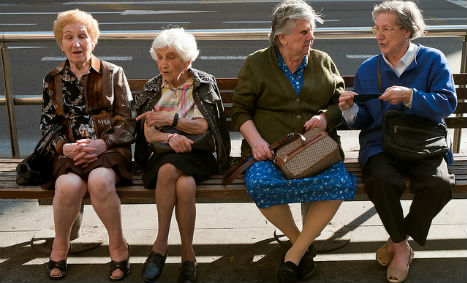
Photo: Diego López Román / Flickr
Close to 30 percent of the population was under the age of 15 in 1975; today it is 15 percent. Those over the age of 65 rose from 10 percent back then to more than 18 percent now
Smaller families

Photo: Shutterstock
The average number of children per woman has more than halved to 1.3, one of the world’s lowest fertility rates.
Longer lives

Average life expectancy for men and women was 73.3 years in 1975; today it is 82 years. Spanish women now live to an average age of 85 years, almost the longest lived in the world.
William Chislett covered Spain’s transition to democracy for The Times between 1975 and 1978. He is the author of Spain: What Everyone Needs to Know (Oxford University Press). The Real Instituto Elcano will publish his new book on Spain in early 2016.
Comments
See Also
The Spain of 2015 is a very different to the place it was on November 20th 1975 when the death of El Caudillo saw an end to 36 years of repression and economic isolation and saw the nation catapulted into modern Europe.
William Chislett explored Spain's unprecendented period of modernization in a report for the Madrid-based think tank Real Instituto Elcano.
Here are ten ways modern Spain is very different indeed.
Women’s rights

Women at work during the Franco era Photo: Teresa Avellanosa / Flickr
Women today account for 46 percent of the working population up from 30 percent in 1975.
Socially progressive

Photo: Shutterstock
From the rigid and asphyxiating morality of the Franco regime and the stricture of the powerful Roman Catholic Church, Spain has become one of the world’s most socially progressive nations. In 2005 it became only the third country in Europe to legalize same-sex marriages.
Richer

Even taking into account the prolonged recession that ended in 2014 Spain has enjoyed an unprecedented period of prosperity.
Economic output increased almost tenfold between 1975 and 2015 to around $1 trillion.
Per capita income rose from US €2,800 ($3,000) to more than €28,000 ($30,000)
Exports of goods and services more than trebled to 32 percent of GDP.
Fewer jobs

People queuing outside a Madrid job centre, 2015. Photo: AFP
The main black point as regards the economy is the unemployment rate: up from a mere 5 percent in 1975 to a whopping 22 percent now.
And employment by sector has changed significantly since 1975. Just 4 percent of jobs today are in agriculture compared with 22 percent in 1975, 14 percemt of employment is in industry and construction, down from 38 percent, while services employ 76 percent.
More tourism

A postcard from Benirdorm circa 1970
Although the package holiday pioneered by Benidorm were invented in the 1960s under Franco, Spain's popularity as a tourist destination has gone from strength to strength. The number of tourists rose from 27 million the year Franco died to an estimated 68 million this year.
More cars

Cars in Spain circa 1976. Photo: AFP
There were 123 cars per 1,000 people the year Franco died and more than 500 cars per 1,000 people today.
More people

A young Juan Carlos greets the crowds in Madrid in 1955. Photo: AFP
The population rose by 10.4 million to 46.4 million, mostly over a 10-year period as a result of an unprecedented influx of immigrants. In the decade before the 2008-13 crisis Spain received more immigrants proportional to its population than any other EU country.
Aging population

Photo: Diego López Román / Flickr
Close to 30 percent of the population was under the age of 15 in 1975; today it is 15 percent. Those over the age of 65 rose from 10 percent back then to more than 18 percent now
Smaller families

Photo: Shutterstock
The average number of children per woman has more than halved to 1.3, one of the world’s lowest fertility rates.
Longer lives

William Chislett covered Spain’s transition to democracy for The Times between 1975 and 1978. He is the author of Spain: What Everyone Needs to Know (Oxford University Press). The Real Instituto Elcano will publish his new book on Spain in early 2016.
Join the conversation in our comments section below. Share your own views and experience and if you have a question or suggestion for our journalists then email us at [email protected].
Please keep comments civil, constructive and on topic – and make sure to read our terms of use before getting involved.
Please log in here to leave a comment.